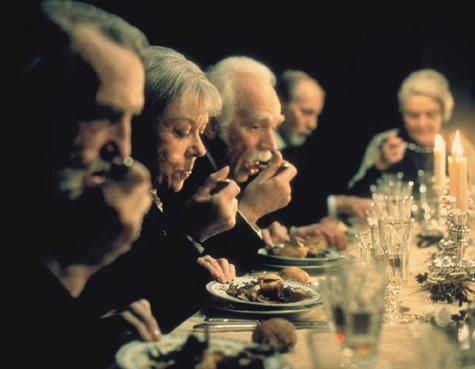
Nordisk Film, © 1988 Orion Classics
Image reproduced from The Village Voice
 |
| Photo
© 1987 Panorama Film/Danske Filminstitut/ Nordisk Film, © 1988 Orion Classics Image reproduced from The Village Voice |
| Academy Award Nominations and Winners: | |
| ★ | Best Foreign-Language Film |
| Golden Globe Nominations: | |
| Best Foreign-Language Film | |
| Other Awards: | |
| Cannes Film Festival: Prize of the Ecumenical Jury (Special Mention) | |
| Permalink | Home | 1987 | ABC | Blog |